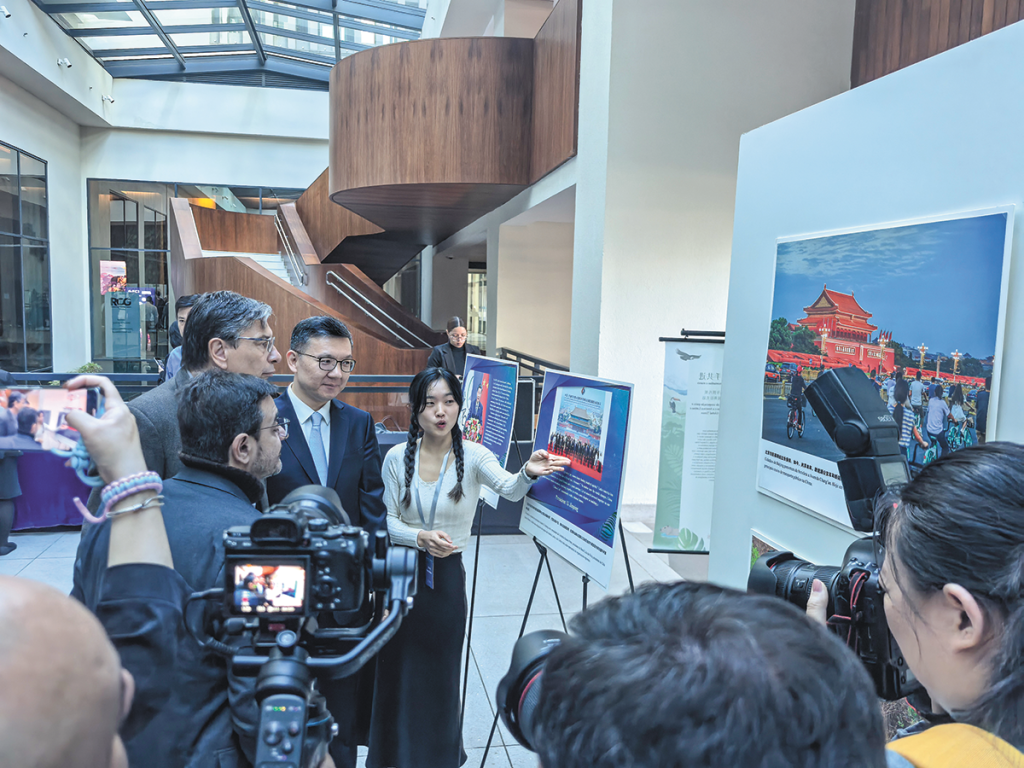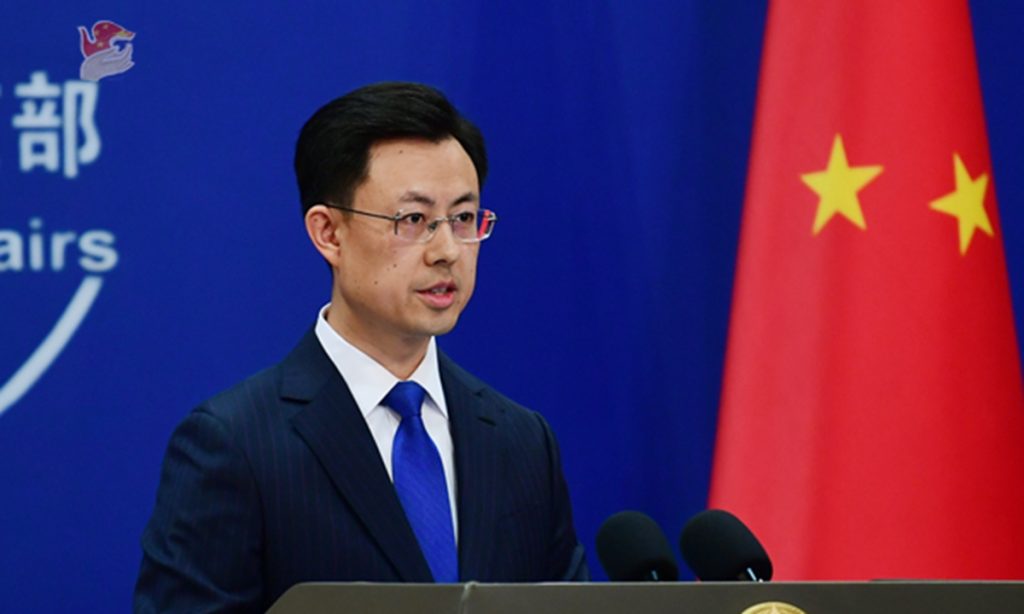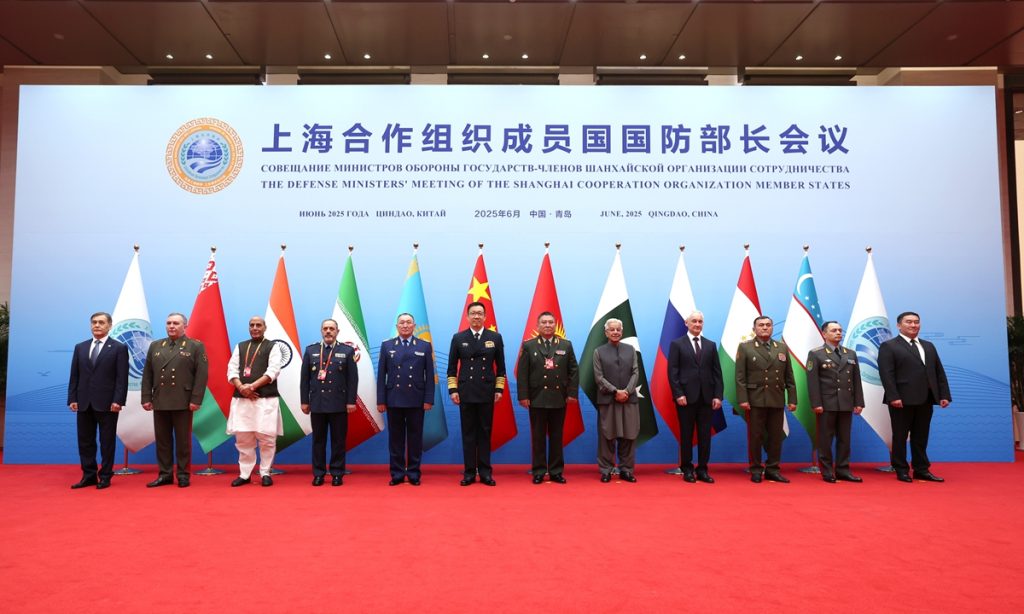Global Times 'Overseas China Week' photo exhibitions in Argentina and Brazil mark decade of China-LAC sustainable development co-op

On June 23 and 25 local time, the Global Times held its "Overseas China Week" events in Latin America and the Caribbean (LAC) with a photo exhibition titled "Moving forward together across mountains and seas: a decade of China-LAC sustainable cooperation," in Buenos Aires, Argentina and Rio de Janeiro, Brazil. The photo exhibition drew widespread attention and positive feedback from various sectors in the two countries.
The exhibition's opening ceremony was held on June 23 local time at the Ibero-American Center for Research in Science, Technology, and Innovation in Buenos Aires. Global Times President and Editor-in-Chief Fan Zhengwei, Chinese Ambassador to Argentina Wang Wei, former Argentine Minister of Science, Technology, and Innovation Daniel Filmus, and former Argentine Defense and Foreign Minister Jorge Taiana jointly cut the ribbon.
The ceremony was witnessed by Chinese nationals based in Argentina, locals, business leaders, and other distinguished guests.
In his speech, Fan said that the event marked a celebration of China-LAC friendship and provided a new platform for sharing governance experiences and strengthening cooperation in sustainable development. Over the past decade, China and LAC countries have worked hand in hand across great distances to contribute touching stories of cooperation in the field of sustainable development, all for the shared goal of protecting humanity's common home.
The photo exhibition this time featured three sections - "Green lifestyle," "Green production," and "Green cooperation." It presented China's achievements in green mobility, clean energy, and ecological governance through photographs, media layouts, and curated exhibits. It also highlighted areas in which China-LAC cooperation has flourished, such as new energy, electric vehicles, satellite remote sensing, and agricultural technologies.
"From shared bikes on the streets of Beijing to self-driving Chinese e-bikes attracting crowds in Brazil, and from clean energy breakthroughs at the Baihetan hydropower station in Southwest China to low-carbon soybean oil produced in Argentina's Timbúes, the photos - taken by Chinese photographers, Chinese enterprises with deep cooperation with Latin America, and selected from the Global Times' own features - not only illustrate green cooperation achievements, but also capture the vivid journey of building a shared future," Fan said.
The exhibition coincided with a key milestone in China-LAC relations. The year 2025 marks the 10th anniversary of the launch of the China-CELAC Forum. In May, Chinese President Xi Jinping delivered a keynote speech at the opening ceremony of the fourth ministerial meeting of the forum, where he said that China and Latin America are advancing hand in hand as a community with a shared future and announced that the two sides would jointly launch five programs of solidarity, development, civilization, peace and people-to-people connectivity, which provided clear direction for building a China-Latin America community with a shared future in the new stage.
Moreover, the 17th BRICS Summit will be held in July in Rio de Janeiro, and COP30 under the United Nations Framework Convention on Climate Change is scheduled for November in Brazil.
"I'm very pleased to visit this photo exhibition organized by the Global Times," said Taiana. "It's a rare opportunity for the people of Buenos Aires to get to know many aspects of China, including its technological achievements, historical heritage, and beautiful natural landscapes. The exhibition offers a great overview and will hopefully spark curiosity to learn more about China and even visit the country in the future," he said.
Speaking on the prospects of China-LAC cooperation, Taiana said, "China is a world leader in renewable energy and environmental protection, while Latin America is home to critical biodiversity resources. China can play a leading role in promoting sustainable energy development, helping Latin America build a more sustainable development model and lifting hundreds of millions out of poverty."
Carolina Mera, a professor at the University of Buenos Aires, told the Global Times that she was deeply impressed by how Chinese technologies were being applied in agriculture and environmental protection. "This is an important inspiration for South America," Mera said. "We should enhance environmental cooperation and learn from China's experience. Argentina also has technologies worth sharing. That's why strengthening China-LAC cooperation is crucial."
During the event, the Global Times Institute signed a memorandum of understanding with the Ibero-American Center for Research in Science, Technology, and Innovation to jointly promote technological exchange and build a closer China-LAC community with a shared future.
On June 25 local time, the photo exhibition was moved to Brazil where it was held in Rio de Janeiro alongside the Global South Dialogue: Roundtable Forum of China-Latin America and the Caribbean (LAC) countries, attracting guests from government, academia, environmental groups, businesses, and the media.
The venue was filled with energy as visitors showed strong interest in themes such as agricultural mechanization in West China, China-Brazil technological cooperation, and urban ecological governance. Exhibition-related cultural and creative products were also well received by the visitors.
Many attendees told the Global Times that the exhibition helped deepen their understanding of the tangible foundation and great potential of China-LAC green cooperation.
Monica Bruckmann, a professor at the Federal University of Rio de Janeiro, said after visiting the exhibition, "We were pleasantly surprised by these photos. China's progress in industrialization and green energy is impressive. Through these images, we can truly feel the country's efforts."
"Seeing China's real advances in green energy, especially in solar power, is so important," Bruckmann noted, stressing that being able to witness these developments through visual media was profoundly meaningful.
"Both Brazil and China have vast natural resources, and an energy transition is vital for both nations. Moreover, China possesses advanced technologies," Bruckmann said. "As BRICS members, establishing strategic cooperation between the two nations is essential for advancing the global agenda."
Evandro Menezes de Carvalho, a professor at Fluminense Federal University in Brazil, was especially moved by a photo showing Beijing residents cycling down Chang'an Avenue at night. "It reminded me of my days in Beijing," he said. Carvalho believes that Beijing is a microcosm of China - seamlessly blending the past, present, and future while advancing steadily on the path of sustainable development.
During the exhibition events in Argentina and Brazil, many overseas Chinese told the Global Times that the images on display were valuable records and hoped they can be preserved locally for a long time. "We hope to see more exhibitions like this coming to Latin America to promote China's green development philosophy and bridge the information gap between domestic and international audiences," said one oversea Chinese in Argentina.
At two photo exhibition events, the heartfelt messages left by visitors in the guest books also served as vivid testaments to the friendship between China and Latin America: "Thank you, Global Times, for supporting the friendship and cooperation among peoples of different countries. Together, we long for a more united and just world." "It is an honor to see this platform promote mutual understanding and friendship between South America and China." "We will always be friends." The messages convey the deep appreciation for China-Latin America exchanges and also reflect the longing for building a community with a shared future for mankind.
Previously, the Global Times "Overseas China Week" event had held similar photo exhibitions and promotional events in Germany and Kazakhstan, using images and visual storytelling to present China's green development philosophy and international cooperation achievements, making China's role in global low-carbon development visible and tangible to the world.
Liu Jialong contributed this story

